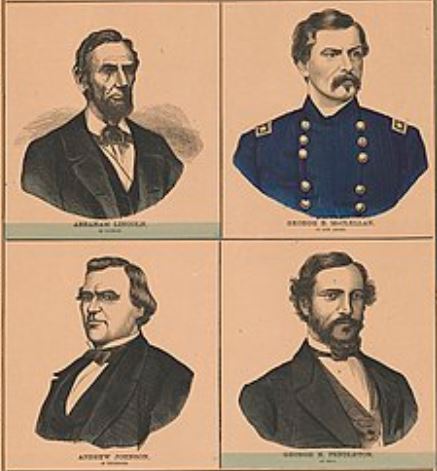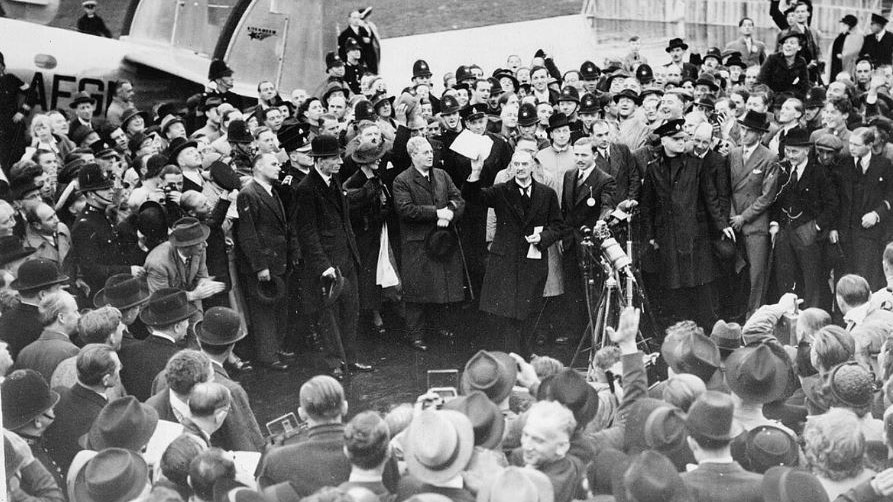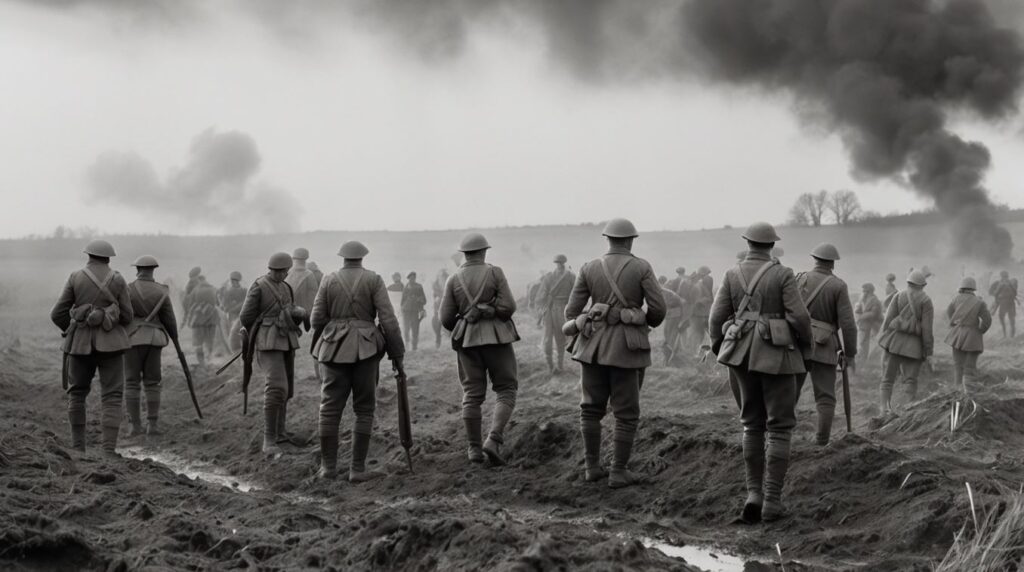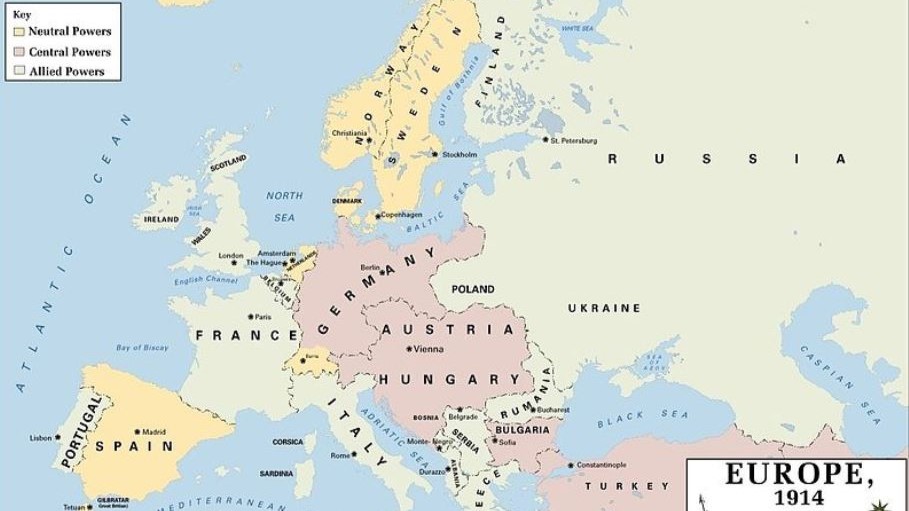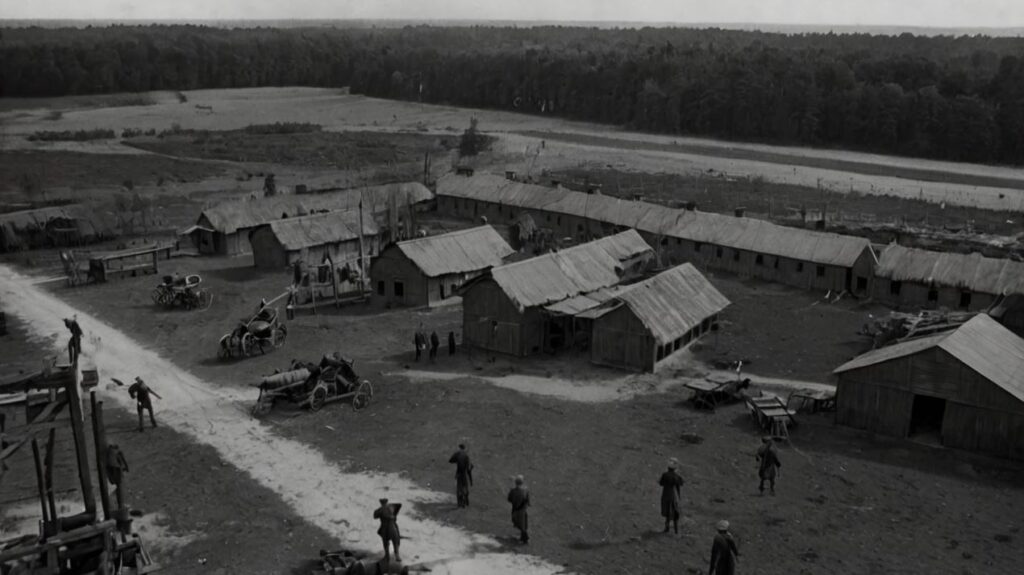The United States was torn apart by civil war. The Confederacy fought for its independence and the preservation of slavery. The Union battled to preserve the nation.
President Abraham Lincoln ran in the 1864 election on the Republican ticket. His opponent was George B. McClellan, a former Union army commander turned Democratic candidate. McClellan favored a negotiated peace with the Confederacy.
What if McClellan emerged victorious in the 1864 election instead of Lincoln? This alternate history explores how such an outcome could have profoundly reshaped the Civil War’s trajectory, reconstruction efforts, national unity, race relations, and America’s standing on the global stage.
- 1. Background to the 1864 Election
- 2. What Would Have Changed for a McClellan 1864 election Victory?
- 3. The Course of the War
- 4. Impact Upon Reconstruction
- 5. Examining McClellan's Presidency vs. Lincoln's
- 6. Impact on the United States' International Standing
- 7. The hypothetical scenario of a George B. McClellan 1864 Victory
- Further Reading
1. Background to the 1864 Election
The United States was embroiled in the bloody Civil War, tearing the nation apart. Following the emancipation proclamation in 1863, the central issue fueling the conflict was slavery. The Union fought to abolish it, while the Confederacy battled for its preservation and independence.
As the 1864 election approached, the very future of the nation hung in the balance.
Lincoln’s and McClellan’s Contrasting Visions
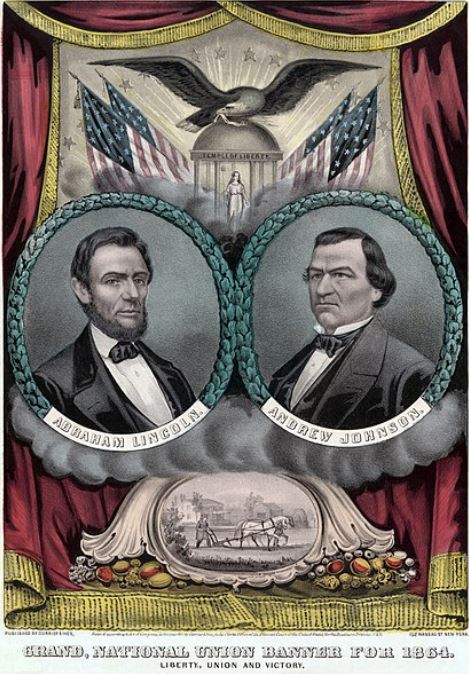
Lincoln embodied the Union’s resolute determination. He vowed to accept nothing less than the Confederacy’s unconditional surrender and the abolition of slavery across all states. His policy was one of relentless military force until victory was achieved, no matter the cost in lives and resources.
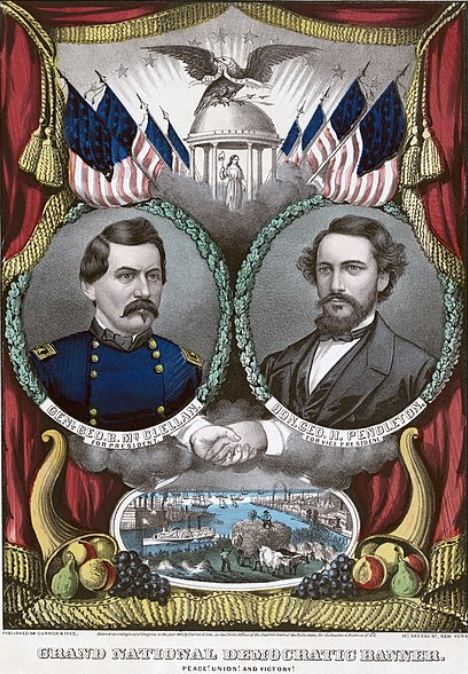
In contrast, McClellan offered an olive branch of reconciliation. As a former Union general, he sought a negotiated settlement allowing the Confederacy to secede peacefully. His controversial platform included preserving slavery in the South, a concession to gain Southern support.
The ideological gulf between Lincoln and McClellan represented two vastly divergent paths for America’s future.
A Lincoln victory would lead to a long, grueling march to total Union victory but deliver a re-united nation without slavery’s scourge.
McClellan’s path promised swifter conflict resolution but would cement the nation’s schism along regional and ideological lines.
1864 Election: A Referendum on the Civil War
The election represented a referendum on the Civil War itself.
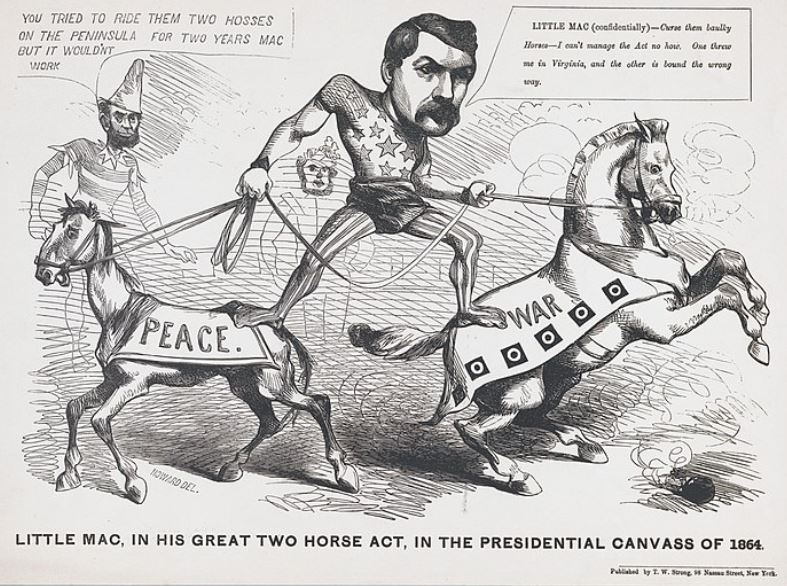
Never before had a presidential vote carried such monumental consequences; the very survival of the United States as a unified nation was at stake.
Union battleground states were a pivotal battleground, with soldiers’ votes potentially tipping the scales.
War-weary Northerners tempted by McClellan’s peace platform contrasted sharply with those devoted to Lincoln’s vision of victory at all costs.
In many ways, the election evolved into a vote on whether to abandon or continue Lincoln’s desire to defeat the Confederacy through total military victory. The respective candidates symbolized either the resolute determination to fight on or the pragmatic path of conflict resolution through compromise.
The 1864 Election Result
The 1864 United States presidential election resulted in the re-election of Abraham Lincoln.
Lincoln secured a majority of the popular vote, receiving 55% compared to McClellan’s 45%. Furthermore, Lincoln won a decisive victory in the Electoral College, obtaining 212 out of 233 electoral votes.
McClellan managed to carry only three states: Kentucky, Delaware, and New Jersey.
2. What Would Have Changed for a McClellan 1864 election Victory?
Several events leading up to the 1864 election might have persuaded the public to vote for George B. McClellan over Abraham Lincoln:
Military Stalemates: Despite initial enthusiasm for the Union cause, the prolonged and bloody nature of the Civil War had led to a weariness among the Northern populace.
If the Union had lost certain battles leading up to the 1864 election, it might have potentially bolstered support for George B. McClellan’s candidacy. For example:
- Battle of Atlanta (July-September 1864)
- Battle of Cold Harbor (May-June 1864)
- Siege of Petersburg (June 1864-April 1865)
- General Early’s Confederate Victories in the Shenandoah Valley (1864):
- Mobile Bay (August 1864)
Copperhead Movement: The emergence of the Copperheads, a faction within the Democratic Party advocating for a negotiated settlement with the Confederacy, gained traction, particularly in states like Ohio, Indiana, and Illinois. McClellan’s more moderate stance and willingness to explore peace talks could have resonated with voters who were weary of the war’s toll on both sides.
Dissatisfaction with Lincoln’s Administration: Lincoln faced criticism from various quarters, including within his own party, for his handling of the war, civil liberties issues, and economic policies. McClellan, with his military credentials and more conciliatory demeanor, might have been seen as a preferable alternative to voters disillusioned with Lincoln’s presidency.
Economic Concerns: The Union war effort had strained the Northern economy, leading to inflation, shortages, and economic dislocation. Some voters may have blamed Lincoln’s administration for these hardships and sought a change in leadership. McClellan’s promise of a more stable and prosperous future could have appealed to voters worried about their economic well-being.
Emancipation Proclamation: While the Emancipation Proclamation had been a significant step towards ending slavery, it was controversial among certain segments of the Northern population. McClellan’s more moderate stance on abolition might have garnered support from voters who were uneasy about the radical nature of Lincoln’s policies.
3. The Course of the War
McClellan’s military leadership style was heavily influenced by his “defensive indecisiveness”. Had he won the 1864 election, this approach could have drastically altered the war’s trajectory if he became commander-in-chief. His caution and aversion to tactical boldness may have prevented major offensives.
A Negotiated Peace Settlement
One of McClellan’s primary objectives was a negotiated armistice recognizing Southern independence. Key terms he may have pursued:
- Gradual compensated emancipation of slaves over an extended timeline
- Confederate assumption of pre-war federal debts
- Border state division or autonomy
- Joint administration of federal properties like ports and forts
However, securing mutually agreeable terms would prove immensely challenging. Southern hardliners unwilling to compromise on slavery might create an insurmountable roadblock. Protracted guerilla resistance from both sides might occur from opposed to the terms.
Continuation of the War
If diplomacy failed, McClellan’s defensive-minded strategy may have allowed the Confederacy to solidify its position.
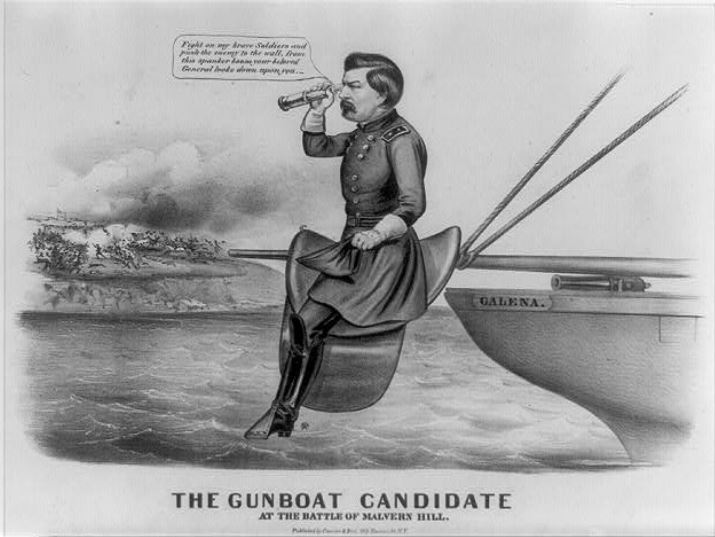
Rather than grant commanders like Grant and Sherman autonomy for total warfare offensives, McClellan may revert to traditional siege tactics aimed at slowly starving out the South through economic attrition.
This could have enabled the more industrialized North to outlast the South – but at a glacial, horrific cost in lives.
Lee and the Confederate Generals may potentially become more emboldened with McClellan’s timid offensive strategy
Ultimately, a more protracted stalemate was probable under McClellan. This may rattle public faith and empower anti-war Democrats. This could lead to a future pro-Confederate administration open to Southern independence.
4. Impact Upon Reconstruction
A negotiated peace settlement under McClellan would have radically reshaped the post-war Reconstruction process compared to the historical path following the Union’s victory.
Rather than a reintegration of the nation under federal oversight, an independent Confederate States likely would have emerged from any diplomatic compromise.
Issues of Slavery and Emancipation
Any peace agreement allowing Southern independence almost certainly included protracted terms for gradual, compensated emancipation rather than the 13th Amendment‘s immediate and unequivocal abolition of slavery.
This would have enabled the inhumane system of forced labor and racial oppression to endure for years, if not decades longer in the former Confederacy.
The prolonged existence of slavery, even if on a gradual phase-out, would delay any meaningful path toward racial equality, integration, and enfranchisement for Black Americans.
With the economic labor system fully preserved, Southern states would lack incentive for progress—fueling intransigence and resentment that undermined reconciliation.
Reuniting the Divided Nation
Rather than federal Reconstruction oversight helping reunify the nation, the Civil War’s resolution might formalize two fully sovereign nations divided along geographical and ideological lines.
Reintegrating infrastructure, trade relationships, transportation networks, and economic policies would have proven immensely challenging across an international border.
The lingering unresolved issues around the war’s fundamental causes—including the future of slavery, states’ rights versus federal power, and racial injustice— would foster an environment ripe for future conflicts.
The threat of violence and a potential “War Between the States” would constantly loom.
Long-Term Impact on Race Relations
Most critically, the lack of a federal Reconstruction apparatus and constitutional reforms left Southern racial caste systems fully intact with little oversight or accountability.
The historical Reconstruction process was turbulent and imperfect, yet still pivotal for laying a constitutional and moral foundation toward enfranchisement and integration of free Black Americans into society after centuries of dehumanization.
Constitutional amendments codified freedmen’s rights and citizenship, the Freedmen’s Bureau provided economic and educational aid, and federal troops safeguarded hard-won reforms—setting the long path for future progress despite tragic shortcomings.
In contrast, a negotiated 1860s peace would delay any national reckoning with slavery’s evils indefinitely.
Systemic racism would remain fully institutionalized across an entire unrepentant nation with no incentive for change.
5. Examining McClellan’s Presidency vs. Lincoln’s
Had George McClellan won the 1864 election instead of Abraham Lincoln, his presidency would have differed vastly in governance and leadership style from his predecessor.
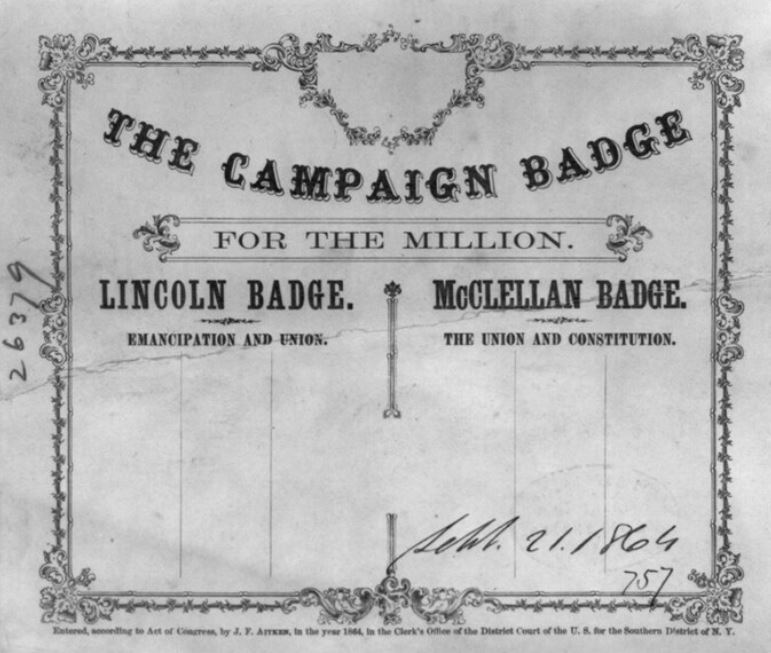
While Lincoln is remembered as one of America’s most transformative leaders, McClellan’s cautious approach may have produced an entirely different national trajectory.
Governance Philosophy
Lincoln believed the presidency’s role was to preserve and strengthen the Union at all costs during its greatest constitutional crisis. His policies reflected an activist vision of robust federal authority to resolve sectional divides through force if necessary.
In contrast, McClellan prioritized an appeasement policy aimed at quickly resolving the Civil War through negotiated compromises with the Confederacy—even if it meant accepting Southern independence. His governance prioritized avoiding further bloodshed over decisive federal action.
Domestic Policies
Lincoln initiated an activist domestic agenda to modernize the economy and provide more opportunities regardless of race. His policies like the Homestead Act, founding of land-grant universities, railroad legislation, and the Revenue Act established the federal government as an engine of socio-economic progress.
McClellan, skeptical of expansive federal powers, may have maintained more hands-off domestic policies. Development of the Western frontier, industrial growth, and nation-building programs could have stagnated without presidential leadership.
Legacy on Race
Lincoln’s unwavering stances—from opposing the expansion of slavery to signing the Emancipation Proclamation and later the 13th Amendment—fundamentally disrupted the existing racial order and laid the groundwork for future equality.
McClellan’s policies would keep slavery intact in the South for years while delaying any semblance of racial justice, integration, and suffrage.
Lincoln shepherded America through its crossroads crisis, avoiding a splintering of the nation and striking a pivotal blow against legalized bondage.
McClellan may have been content presiding over an uneasy stalemate accepting two separate sovereign nations bitterly divided on slavery’s morality and economic role.
6. Impact on the United States’ International Standing
A McClellan victory in the 1864 election would have had profound ramifications on the United States’ development as a nation and its position on the global stage for generations.
The Fragmented Nation
By allowing the Confederacy to secede and form an independent nation, the United States would have been permanently divided in two.
The two nations would likely be consumed by economic competition, border conflicts, and hostile relations.
Without the Union’s industrial might and combined resources, the development of the shattered American nations could stagnate.
Westward expansion, infrastructure projects, economic policies, and military strength would be stalled.
The promise of an ascending continental power was jeopardized.
Global Standing Diminished
On the international stage, a fractured United States would lose substantial influence and power projection compared to remaining a united nation after total victory.
Diplomatic Relations: A McClellan victory could have strained diplomatic relations with countries that had supported the Union cause.
Nations like Britain and France, which had abstained from recognizing the Confederacy but had sympathized with its cotton exports, might have felt emboldened to engage more directly with the South under a McClellan administration. This could have led to tensions and potentially even conflicts over issues such as trade and neutrality.
Shift in Global Alliances: The two American nations could become divergent spheres of influence for European rivalries to play out.
The outcome of the Civil War had implications far beyond American borders. A McClellan victory might have shifted global alliances, with countries aligning themselves based on their support for either the Union or the Confederacy. This could have led to a reconfiguration of power dynamics, potentially weakening the influence of the United States on the world stage.
Impact on the Spread of Democratic Ideals: Lincoln’s presidency was instrumental in shaping the perception of the United States as a beacon of democracy and liberty. A McClellan victory, particularly if it resulted in the preservation of slavery or a less stringent approach to Reconstruction, might have tarnished this image. It could have weakened the United States’ ability to advocate for democratic ideals abroad and set back the cause of abolitionism globally.
The United States’ moral standing and soft power advocacy for democratic ideals like self-governance and human rights was severely undercut. Allowing the Confederacy’s existence validated the expansion and institutionalization of racial slavery and oppression rather than its eradication.
Potential for Further Fragmentation
McClellan’s policies allowing Southern secession would create a blueprint for further national fractures in the future. Other states or regions could attempt to break away, leading to perpetual constitutional crises.
Unity was exchanged for an uneasy coexistence of rival nation-states with clashing ambitions rather than functioning as a unified world power.
The United States that would emerge from a potential McClellan victory would be a shadow of the industrial, militaristic, ideologically principled and united nation it became by the 20th century after Lincoln’s leadership.
Its strength would be diminished and its longevity cast in doubt, impacting its standing among global powers for a century or more.
7. The hypothetical scenario of a George B. McClellan 1864 Victory
The hypothetical scenario of George B. McClellan defeating Abraham Lincoln in the pivotal 1864 election opens up a vast alternate history with stark ripple effects across America and the world.
As we reflect on this crossroads, one can’t help but wonder – did the 1864 election’s outcome determine the fate of the American nation itself? Could the United States have remained a sustainable, enduring union if McClellan’s drive for a swift peace resulted in Confederate independence? The consequences and precarious path forward that victory may have created underscores Lincoln’s resolute leadership as pivotal to preserving the Union’s ideals of liberty and equality.
Further Reading
If you enjoyed this article, you may be interested to read more alternative history articles or about the American Civil War events or more general American history.

